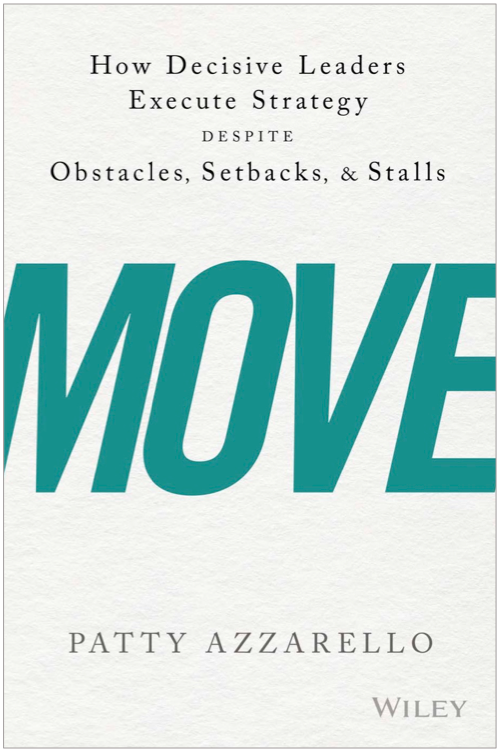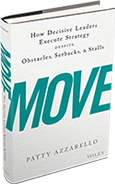How does the idea of a scavenger hunt relate to business?
Think about how a scavenger hunt works. You get a list of random stuff that you have go find and do, and you need to show that you have collected those things and experiences.
No one holds your hand during the scavenger hunt. No one tells you what to do. You are on your own, with some hints. Then you need to figure out how, and where to go find stuff.
I realized in my career as a business leader, that applying the scavenger hunt approach could greatly optimize how to teach or convey new information to people.
The scavenger hunt approach puts the responsibility on people to learn the things themselves, and therefore they learn them more deeply.
It makes the process of bringing a person up to speed on something more efficient and effective — and is easier for everyone.
I have found this approach particularly useful for onboarding and delegating.
Onboarding
Let’s start with the typical employee onboarding process.
Instead of, or in addition to, a traditional classroom/online style learning experience, where you parade in or show videos of various group leads and executives to tell people stuff, you can instead give people a list of stuff they need to go find and figure out themselves.
Some examples:
- Visit HR. Talk to Max. Get your badge.
- Review the internal website and find the answers to these three questions…
- Review the public website and write a 300-word summary of our business strategy
- Schedule a 15-minute meeting with one of these 5 people in product development and write up a summary of the 5 key feature of our product
- Schedule a 15-minute meeting with one of these 10 sales people and ask them these three questions about how we sell our products and services
More Meaningful Learning and Connections
In each of these steps, the person needs to find out where groups are, so probably will find your org charts and/or corporate directory. They meet a bunch of people along the way and will make some meaningful connections.
They need to put your business ideas into their own words, so they will have absorbed them better than if they were told or read (or didn’t read) about them on the online training.
It will also solve the problem that a new employee can feel alone for a long time.
Even for an introvert this works, because introverts are OK to meet people as long as they have a mission. It’s just telling them to meet people for no tangible reason that they find agonizing.
Creating this list is actually a fun thing to brainstorm.
I’ve even seen companies really embrace this and make it into a game by giving each destination on the list a part of a toy like a Mr. Potato Head or a Lego model, and when you finish the scavenger hunt, you have the finished piece.
People figure out how to find stuff on their own, they meet a bunch of people right away, and they learn the things you need them to know for themselves
So they ramp up their skills and confidence much more quickly, and have already started to build their network of support during the process.
Delegating
This month the Executive Playbook in my Executive Mentoring Group is on Get Great at Delegating.
One of the key things that I cover in that playbook is the importance of thinking about delegating not just as assigning work, but as an opportunity for teaching and building capability in your team.
This scavenger hunt idea is ideal way to increase learning, reduce risk, and achieve a better outcome when you delegate something.
Here’s what I mean.
When you delegate something that you know how to do really well, but the person you are delegating to needs to learn it, there can be a tendency to micro-manage, or just do it yourself.
But it’s vitally important that you develop the people on your team to be able to do the work and get as good at it (or even better at it) than you are. There is a lot more about this in the Executive Playbook.
Instead of delegating something and then having the person return it to you (the expert) in a finished form, and you being the one with the red pen correcting and fixing everything about it, use the scavenger hunt approach.
Create a list of hints for the person to go learn on their own — and have them get approval from others stakeholders during the work process — not just from you at the end.
Have a conversation with the person about end goals and intermediate outcomes. Then create the scavenger hunt list that will get you those desired outcomes.
For example, if you delegate the creation of an automated marketing campaign, your list might look something like this:
Outcome: The right strategy
Define the strategy and top 3 goals for this campaign and get the approval of one sales manager in each region.
Outcome: A compelling engagement strategy
Create a sequence of 5 steps, and define the customer messages and call to action in each one. Get the review of 2 inside sales people and 2 enterprise sales people.
Outcome: Make sure the campaign is on brand
Go the the marketing department to select or co-create a template to be used for the emails in this campaign, and test the final copy with them.
Outcome: Get a schedule and resources committed to implement the campaign
Specify the landing pages, and go to the digital marketing team to get their approval and a schedule to implement.
Outcome: Verify technology requirements
Review the customer interaction requirements with Susan in IT. Make sure there are no requirements that fall outside our standard system, or if there are, that there is a plan to address them. Get her input and approval.
At the end of this process, the person will have learned much more, and at a much deeper level than they would if they brought you the result, and you fixed it all for them.
They will also learn a lot more than if you were micro-managing them, by helping with all the details along the way and packing their lunch every day.
Think about it…
You learned how to get good at this thing by doing it, getting feedback, and re-working it until it achieved a level of agreed excellence from the various stakeholders.
By using the scavenger hunt approach, you can give your team members the same opportunity to learn directly from stakeholders and to do great things.
By staying focused on outcomes, but guiding they way with the scavenger hunt list, you reduce the risk of failure and you optimize the learning experience.
Get the Executive Playbook on Delegating for Free
It’s not too late (2 weeks left) to get in on the Get Great at Delegating Executive Playbook.
And in fact, you can get the Executive Playbook on Delegating for Free as part of a 30-day free trial. Just follow this link to get started.
What do you think?
What do you think about these ideas? What would you add? Join the conversation about this on my Facebook page.
Was this useful?
If you found this article useful, please help me share it with others and encourage them to subscribe to this Blog for free.
ABOUT PATTY:

Patty Azzarello is an executive, best-selling author, speaker and CEO/Business Advisor.
She became the youngest general manager at HP at the age of 33, ran a billion dollar software business at 35 and became a CEO for the first time at 38 (all without turning into a self-centered, miserable jerk)



